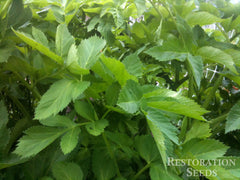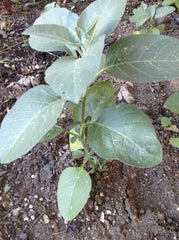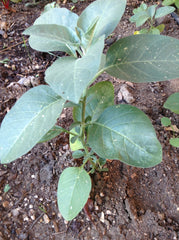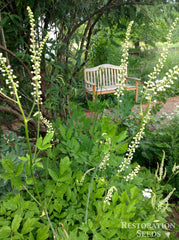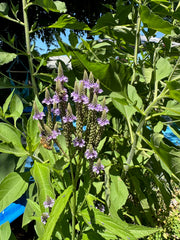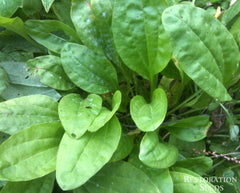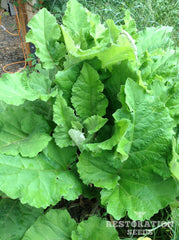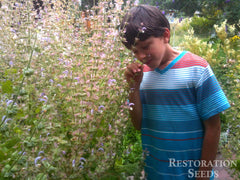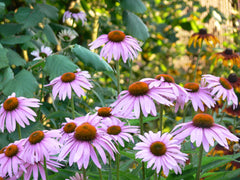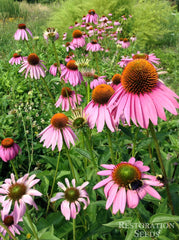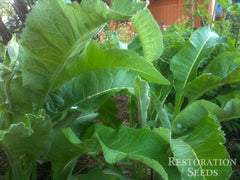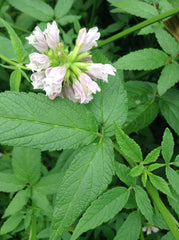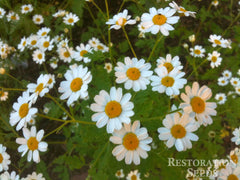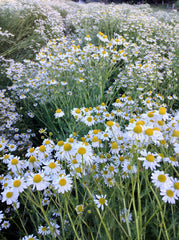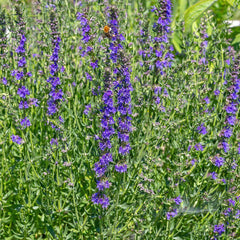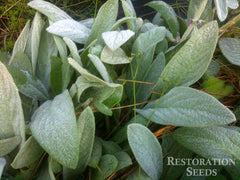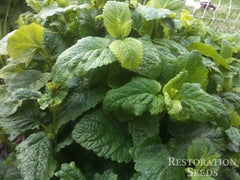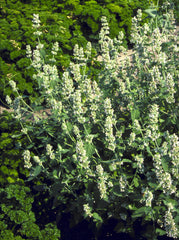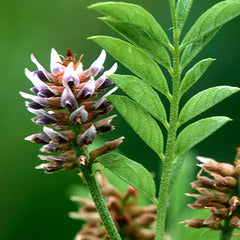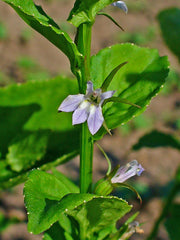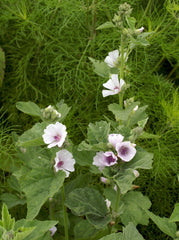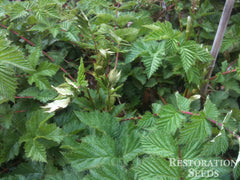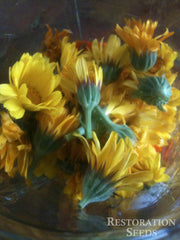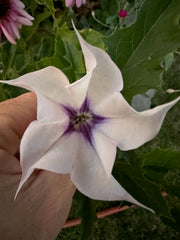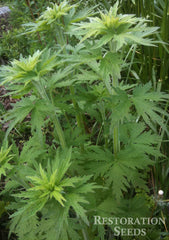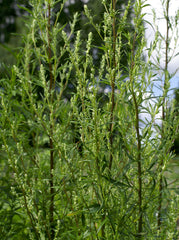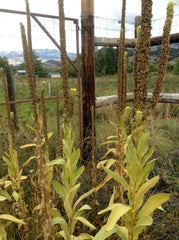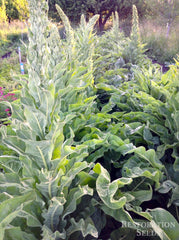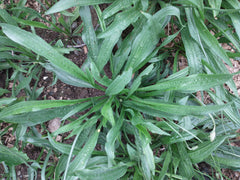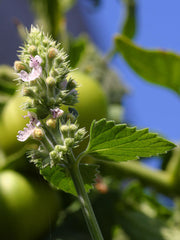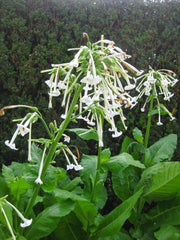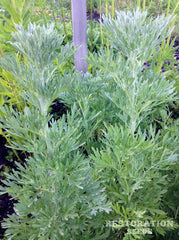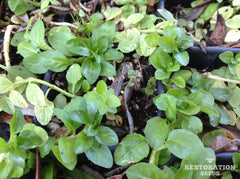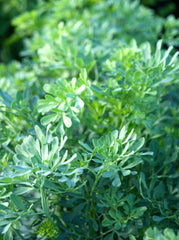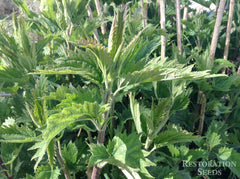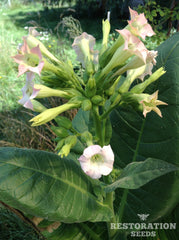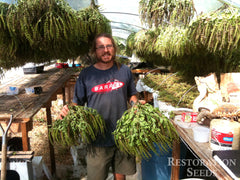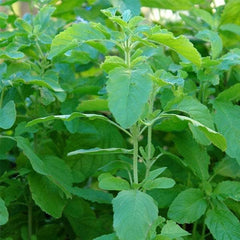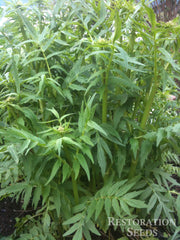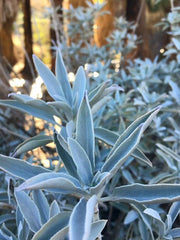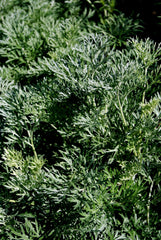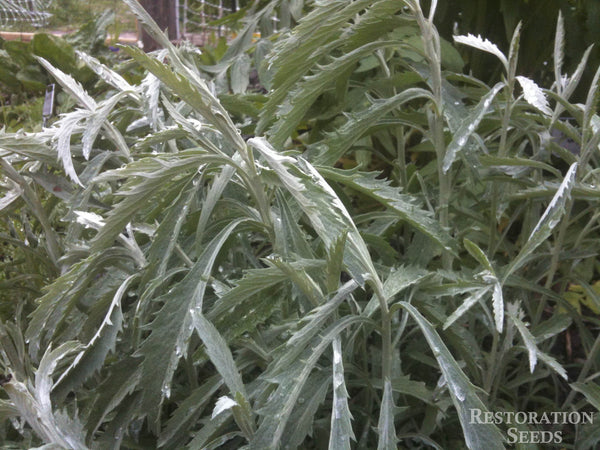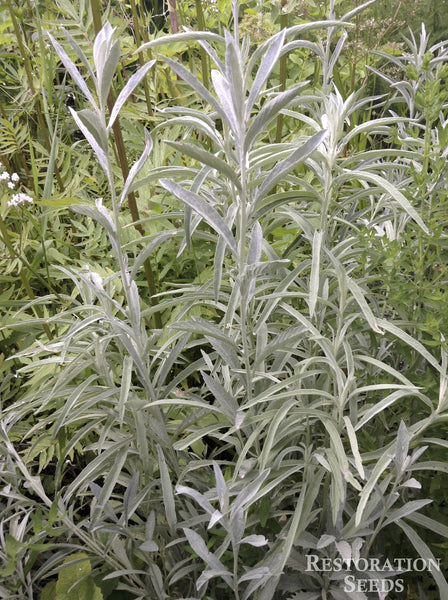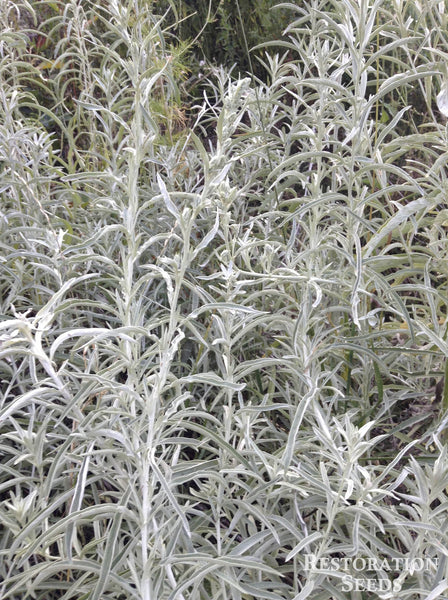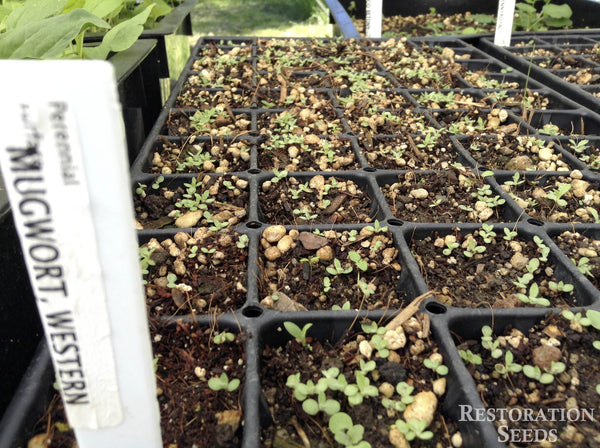Mugwort, Western
Artemisia ludoviciana
HOW TO GROW MUGWORT, WESTERN
Direct sow in spring in moist planting medium, keep moist until germinated. Start indoors 4-6 weeks before last frost, grow on in pots or cold frame until large enough with true leaves to transplant. Prefers slightly alkaline depleted soils, no standing water. Good for soil cover, stabilizes slopes and dry sandy areas, fixes nitrogen in the soil. Creeping rhizomatous perennial easily propagated by division in early spring. We have not found this variety to be aggressive in the garden. Makes a good companion with woodier Artemisia tridentata. Drought tolerant. Surface sow, press into soil, do not cover. Soil pH 6.6-7.8. Hardiness zones 3-10. Perennial.
Usual seed life 5-7 years.
Planting Depth surface requires light
Soil Temp. Germ. 68˚F
Days to Germ. 7-14
Plant Spacing 18-24”
Row Spacing 30-48”
Days To Maturity 150
Full Sun, Moist Well Drained Soil
Usual seed life 5-7 years.
Planting Depth surface requires light
Soil Temp. Germ. 68˚F
Days to Germ. 7-14
Plant Spacing 18-24”
Row Spacing 30-48”
Days To Maturity 150
Full Sun, Moist Well Drained Soil
- 100 Seeds$4.10
- 1000 Seeds$18.50
Long narrow silver-gray leaves, not as woody as some varieties. Used by Native Americans for medicinal, ceremonial and veterinary purposes. Apache cooked meats with it. Blackfoot made a tea for coughs, deodorized shoes, and covered floors of the sweat lodge. Also used as incense. Helps with ailments of lack of appet...
Long narrow silver-gray leaves, not as woody as some varieties. Used by Native Americans for medicinal, ceremonial and veterinary purposes. Apache cooked meats with it. Blackfoot made a tea for coughs, deodorized shoes, and covered floors of the sweat lodge. Also used as incense. Helps with ailments of lack of appetite by promoting gastric juices and bile secretion. Induces sweating. A wash of mugwort can be applied to alleviate eczema. Emmenagogue. Also known as prairie wormwood, silver wormwood and gray sageroot. Do not use if pregnant. Tags: Certification: Organic.
Native to prairies, thin woods and desert climates of western and central U.S.
Native to prairies, thin woods and desert climates of western and central U.S.
Learn More
Meet Your Farmer
We promote fair trade, organic practices and environmental responsibility throughout the Restoration Seeds supply chain. Below are the family farmers and seed suppliers who bring our open pollinated seeds to you.
Restoration Seeds
Certified Organic by OR Dept. of Ag.
Seed grower since 2009


Restoration Seeds is a farm-based seed company committed to selling seeds growers can save. We guarantee high quality seeds through our extensive variety trialing and plant breeding programs. We empower family farmers and home gardeners by offering 100% Open Pollinated seeds.
Reviews
